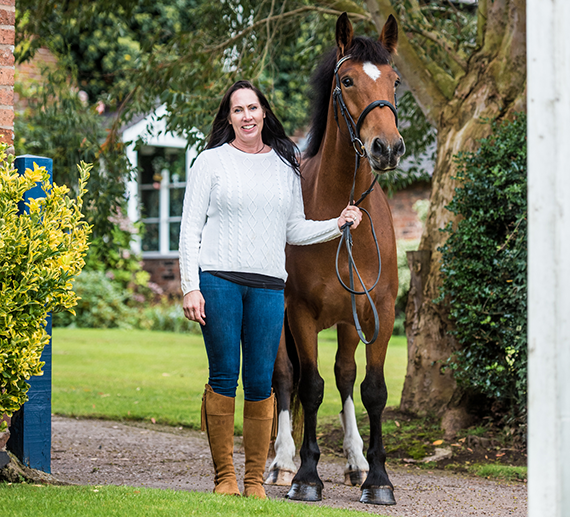
The British Equestrian Trade Association has appointed Dr Diane Fisher, a consultant in major trauma and emergency medicine at the University Hospitals of North Midlands NHS Trust, as its chief medical officer.
Diane will act as ‘a voice of authority’ on all aspects of rider safety and sit on the BETA Safety Committee. She is set to spearhead initiatives to improve the reporting of equestrian accidents, assist with BETA’s safety courses for riding hat and body protector fitting, and provide safety advice and guidance to its member companies.
“I am really honoured and excited to take up this position,” she said. “Rider safety sits at the very heart of BETA and I am really looking forward to helping to make a difference.
“I know that details of equestrian sport injuries are not recorded by hospitals and I really want to get something done about this. We need this data, which should be collated on a national level so that we can feed it back to safety garment manufacturers.
“I think that riders can get a raw deal when they come into hospital. Medics understand the potential for injury in a motor accident, but they don’t always when it comes to equestrian incidents.”
ENTHUSIASTIC
BETA executive director Claire Williams said: “Diane is a breath of fresh air and so enthusiastic about supporting us in our efforts to promote rider safety among consumers and the trade.
“This, coupled with her huge amount of knowledge and expertise in trauma and emergency medicine, will prove invaluable in helping BETA to raise the benchmark even further for safety in equestrian sport.”
Diane formed her popular All the King’s Horses Instagram and Facebook pages last year to help educate riders about how they should respond following an equestrian incident.
“Some riders really don’t help themselves when they put on a stiff upper lip and withhold what could be crucial information to the medical team and they end up under-triaged,” she said.
“They really need to know the basics, such as what to tell the paramedics when they arrive at the scene or what to do when there is an accident and people are worried about moving a rider’s neck. There is so much I can share with riders and this page helps me to reach out with really important tips and advice.”
HORSEWOMAN
Diane is based at the trust’s hospital in Stoke-on-Trent, Staffordshire, and lives on the family farm in Cheshire with her husband, Stuart, three horses and three dogs. Her son, Joe, is a Gurkha officer in Brunei, daughter Abbie is a solicitor and stepdaughter Hannah is in her second year of studying psychology at university.
A keen horsewoman, Diane trains with Pammy Hutton at the Talland School of Equitation. She competes at low-level dressage and is currently awaiting grading confirmation, which would allow her to compete as a para rider because of nerve damage sustained in her lower leg following a freak non-equestrian accident 15 years ago.
Diane takes over from Dr Michael Whitlock, an A&E consultant until his retirement last year, who supported BETA for more than two decades with its courses and the development of riding hat and body protector standards.


